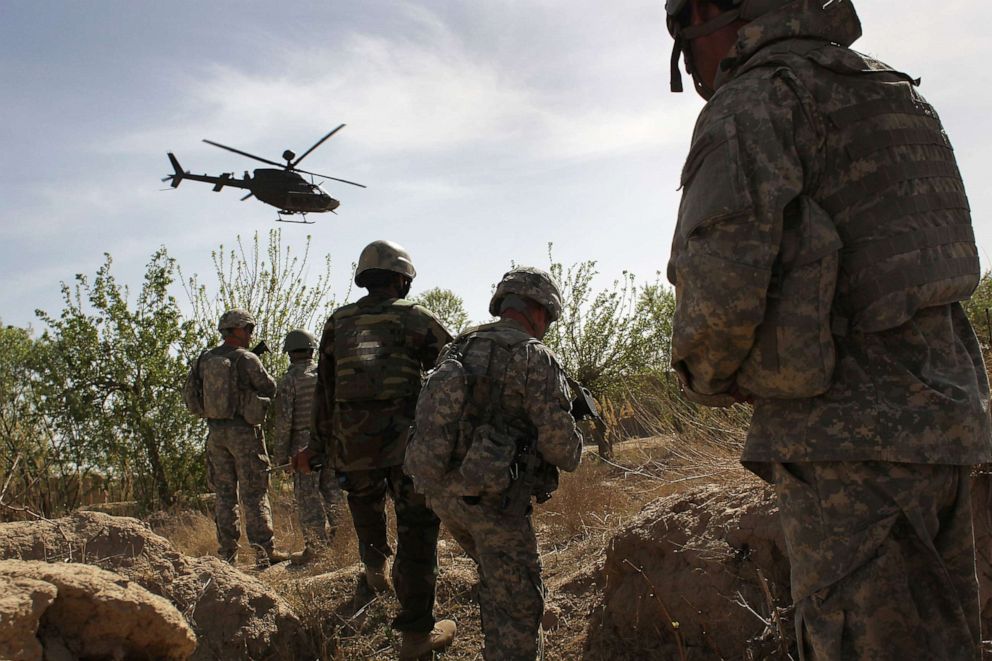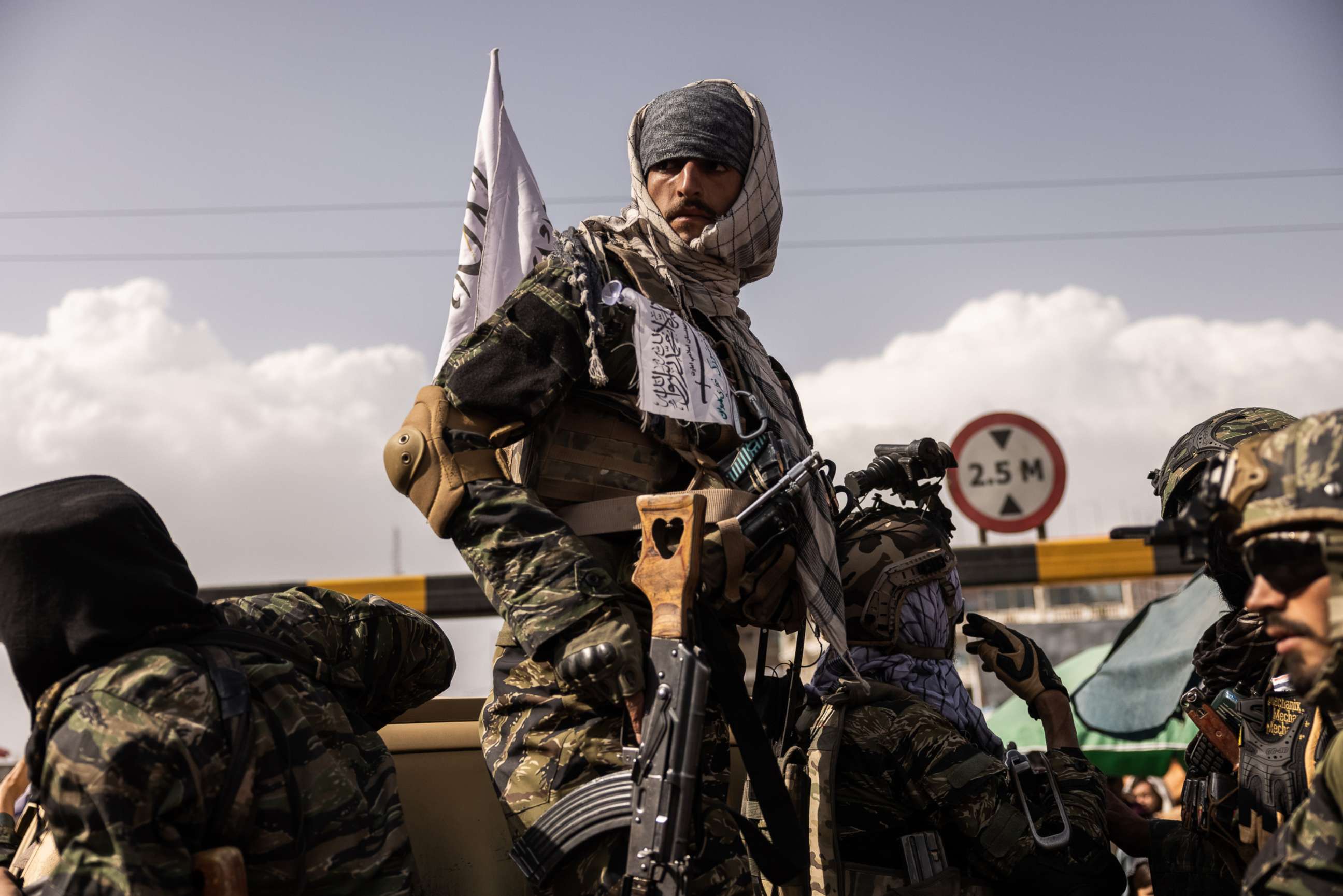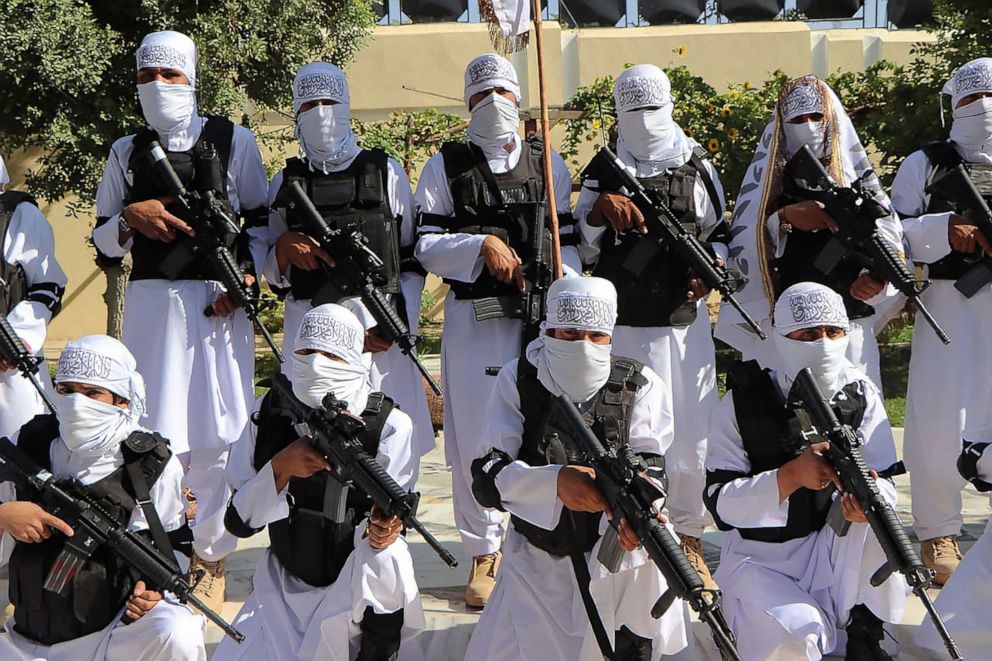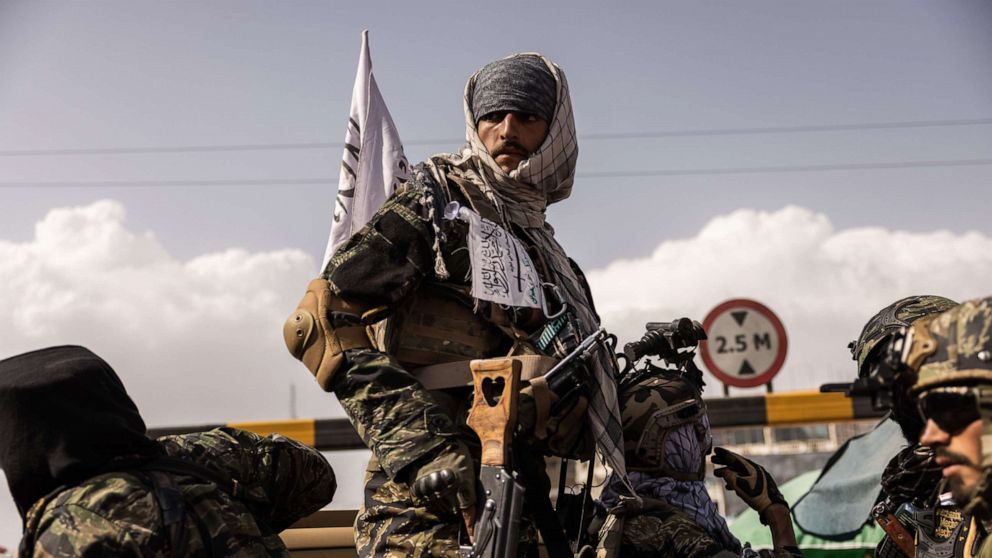Taliban fighters hunting blacklist of Afghan officials, US-trained forces: Private intel report
Taliban fighters are "intensifying" their "hunt-down" of Afghan officials, security forces and police and punishing their families when they can't find them, according to a new private intelligence report obtained by ABC News.
The report was provided to the United Nations, which shared it with member countries, including the U.S., according to American officials.
It offers chilling new evidence of the militant group's efforts to violently crack down on the Afghan people and consolidate power by eliminating its enemies -- moving with systematic speed less than one week after seizing the country's capital, Kabul.
Several former officials, along with Afghans who worked for the U.S. mission in Afghanistan, have told ABC News they fear for their lives amid a mass rush on Kabul airport and Afghanistan's borders. While security forces appear to be their prime target, the report warns Taliban fighters have threatened action against Afghans who worked with the U.S. and United Kingdom as well.
The report was compiled by the Norwegian research firm RHIPTO, which provides analysis to the U.N. and INTERPOL, the international police agency.
The U.N. has not independently confirmed its findings, according to a source familiar with the report.

The U.S. government received the report from the U.N., State Department spokesperson Ned Price confirmed to ABC News.
"We're going to take a very close look at it, but I'm not in a position to offer any conclusions yet," he said Friday.
Taliban fighters have conducted "door-to-door visits" of targets on their blacklists, "conducting advance mapping of individuals prior to the take-over of all major cities" and gathering intelligence on targets through credit dealers, mosques and local informants "eager to collaborate" with the new regime, the report said.
"What we fear is because the Taliban is so much more well-organized now than they were 20 years ago, they are completely different. We fear that they will more act like a state actor in terms of firstly securing high-value targets and then systematically go down the chain and take out more low-level individuals as systematically," said Christian Nellemann, executive reporter of RHIPTO, also known as the Norwegian Center for Global Analyses.
That systematic approach is evident in the group's execution, added Nellemann, acting almost as soon as they enter major cities in recent weeks to set up security checkpoints to screen for individuals or contacting local mosques or hawala dealers -- an informal credit system common in the Islamic world.

That includes checkpoints around Kabul's Hamid Karzai International Airport, where the U.S. has a massive evacuation effort underway to airlift U.S. citizens and Afghans who worked with Americans or are deemed "at risk."
U.S. officials have repeatedly said the Taliban will not interfere in that operation, but for days now, Taliban fighters have blocked countless Afghans from even accessing the airport. Some Afghan officials are afraid to even travel to the area, knowing that Taliban fighters could identify and kill them, they've told ABC News.
The priority targets, according to the report, have been Afghans who worked for the intelligence service, special operations forces, police and armed forces. But RHIPTO said there are multiple reports that the militants are "extending" their lists to include Afghans with ties to the U.S., NATO and allied forces.
In addition to door-to-door visits in Kabul, they have also sent notices to some Afghans who worked with American and British forces, demanding that they come to Taliban military and intelligence headquarters "and provide information about the nature of your work and relationship with the British and Americans."

"If you do not report to the Commission, your family members will be arrested instead, and you are responsible for this. You and your family members will be treated based on Sharia law," warned the notice, obtained by RHIPTO and shared with ABC News.
Asked about these ongoing reprisal killings and targeted assassinations, Price said, "If we determine that the Taliban have continued to commit atrocities ... we will work with our allies and partners to hold the perpetrators accountable."




